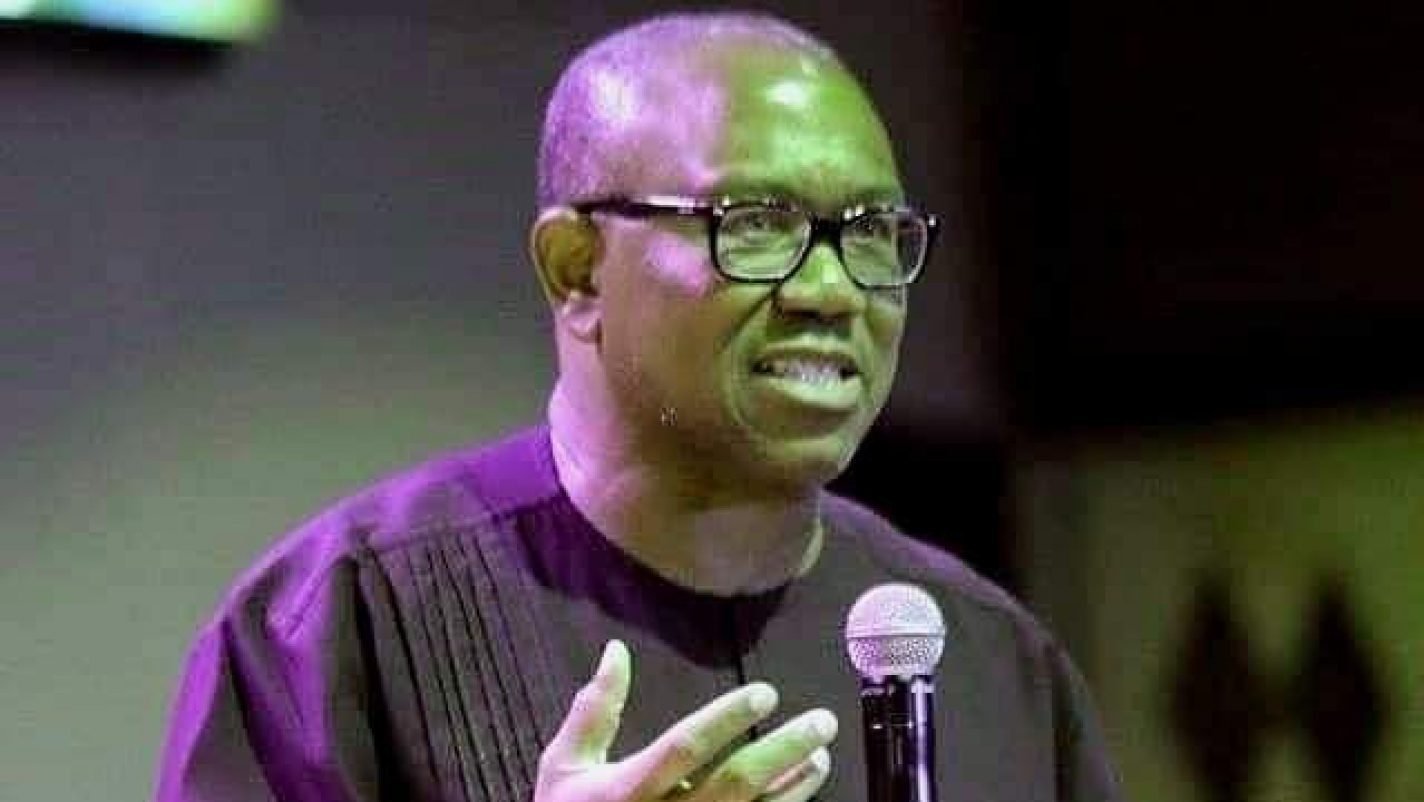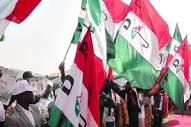By Tunde Olusunle
He contested the gubernatorial election of January 9, 1999 on the platform of the Peoples’ Democratic Party, (PDP), to be governor of the north eastern state of Adamawa and won handsomely. His closest rival was a seasoned politician, Bala Takaya, of what was then known as the All Peoples’ Party, (APP). The party would subsequently tinker with its name to make it the All Nigeria Peoples’ Party, (ANPP). The electoral demographics between him and his major competitor was over 45000 votes at the time, which was very huge. The margin between Aminu Tambuwal and Ahmad Aliyu in Sokoto State, in 2019, was as slender as 342 votes! While awaiting his inauguration scheduled for May 29, 1999, however, fate changed his political trajectory.
Olusegun Obasanjo, the retired army general who was once military head of state, emerged winner at the presidential primary of the PDP, held in Jos, Plateau State, mid-February 1999. Atiku Abubakar, the retired public servant had earned his stripes as leader of the Peoples’ Democratic Movement, (PDM). The pan-Nigerian political association was formed by Shehu Musa Yar’Adua, who was Obasanjo’s deputy when the latter was military head of state. Atiku commanded respect and adulation from his colleagues, governors-elect, who deferred to him for his experience and political savvy. Immediately after the Jos primary, a running mate had to be on the ballot with Obasanjo, who opted for Atiku Abubakar.

Atiku’s running mate on his governorship ticket, was Boni Haruna, a young political scientist whose paths had crossed Atiku’s, at several junctions. Haruna for instance, was deputy managing director of “Sub-Saharan Press Ltd,” publishers of Lagos-based news magazine, The Week floated by Atiku. Once he retired from the public service into politics, Atiku had been advised to own a publication which will give him a voice in the political space. Chris Mammah, a journalist and longtime acquaintance of Atiku, was the managing director of the organisation. It was from this position that Atiku plucked Haruna, a Christian like Mammah, to balance his governorship ticket. Mammah is a christian from Delta State, by the way.
Haruna was automatically upgraded governor-elect, following Atiku’s transmutation to presidential running mate. A muslim deputy, Bello Tukur, was sought for him for essential ethno-religious balance. But both from the traditional establishment and the burgeoning political class, there was murmured disaffection and dissent to the new status quo. There were indeed sponsored litigations, which tested the position of the Constitution of the Federal Republic of Nigeria, on this novel political configuration. And tried as appellants did, Atiku stood steadily and solidly behind Haruna.
As he settled down to his brief as vice president, Atiku’s even-handedness and pan-Nigerianness came to the fore. As with the president, some of his aides were assigned from the pool of public service agencies. And Atiku made no fuss about that. Baba Gana Zanna, ambassador and chief of protocol, (Borno); Azu Ndukwe, seasoned medical doctor and chief physician to the VP, (Anambra), were in this bracket. Same were Abdullahi Nyako, (principal secretary, (Adamawa) and Abdul Yari Lafiya, (Nasarawa), who was then a deputy superintendent of police, (DSP). He is now assistant inspector general of police, AIG) and was Atiku’s ADC. Mahmoud Ahmed, senior operative from the Department of State Services, (DSS) and chief security officer to the VP, also belonged to this category.
By the curious governance configuration of the Obasanjo regime, all presidential aides were first and foremost appointees of the president, who were thereafter deployed to various departments and organisations as the case may be. Atiku’s chief of staff, Olusola Akanmode, (from Kogi); media adviser, Chris Mammah, (Delta); legal adviser, Maxwell Gidado, professor and Senior Advocate of Nigeria, SAN, (Adamawa) and media assistant, Emeka Ihedioha, (Imo), were all christians. His gender-sensitivity was manifest as he appointed Tokunbo Adeola, a christian from Ogun State as special assistant on the National Economic and the National Privatisation Councils, respectively. She diluted the virtual all-male “cast” of the VP’s office.
Nath Yaduma, (Adamawa), Atiku’s longtime acquaintance also joined him on the special duties brief. Aides of the flagbearer of the PDP who were assigned various schedules, included: Onukaba Adinoyi-Ojo, (Kogi), who functioned as media adviser for a while before being appointed managing director of the Daily Times of Nigeria Plc. Usman Bugaje, (Katsina); Hamilton Isu, (Ebonyi); Ajuji Ahmed; Umar Ardo; Butrous Pembi, among others, were also appendages of the VP’s office. By the second term of the Obasanjo/Atiku administration, seasoned technocrats and professionals like Sam Oyovbaire, Emeritus professor, (Delta); Garba Shehu, (Kano); Shima Ayati, (Benue); Andy Okolie, (Imo) Adeolu Akande, (Oyo); Chike Okolocha, (Delta), all joined Team Atiku.
Atiku enthroned a dispensation of regular engagement between him and his aides, which they looked forward to. There was a weekly meeting between him and his principal aides to review his activities and programmes in the previous week, and to plan and prepare for the new week. Away from the serious mien, the serially misconstrued haughtiness of his public profile, you find in Atiku a genteel, regular, friendly guy, who would laughingly banter with you. You wonder how he contains these divergent sides of him in one.
Back home in Adamawa State, January 2003, the four year old democratic regime was going to stage the very first elections of the fourth republic, by itself. Boni Haruna the incumbent desired a second term as governor. There were also other aspirants. As he was yielded the microphone at the gubernatorial primary, Atiku shocked many people. There was a general assumption that with the weight of his office, he was in a position to “right the wrong” done to the state in 1999, when Haruna became governor by “default.”
Atiku pleaded with leaders and delegates of the PDP, to endorse, without equivocation, Haruna for a second term in office. According to him, democracy was just beginning to take root in the country. Haruna, he explained, did well during his first term in office and should be supported for his constitutionally allowed second term in office. Atiku explained that four years was just around the bend, so aspirants should please persevere. Those who thought the former Vice President would capitulate to religious sentiments were astounded. He reminded dissenters that they were free to exercise their democratic rights by pursuing their ambitions in other political parties.
It is very important to lay this precedence against the backdrop of the gross mismanagement of Nigeria’s ethno-religious equilibrium under the watch of the Muhammadu Buhari presidency. At every turn, Buhari has left no one in doubt about his rabid irredentism on the grounds of religion and tongue. Under him, we’ve had a government where 80 per cent of the service and intelligence chiefs, are from the president’s section of the country. What is more, they are adherents of his own faith. It is from his own geopolitical zone, the north west, where all the members of the federal executive council, are all substantive ministers, manning very strategic, maybe “juicy” ministries, as in local parlance.
These include: finance; defence; police affairs; water resources; agriculture and rural development; aviation; justice; environment; humitarian affairs and disaster management, a whopping 10, out of 44 ministers, including the president himself who is the substantive minister of petroleum! Elsewhere, we have two ministers from the south, including a Senior Advocate of Nigeria, (SAN), marooned into a minuscule ministry like we see in labour and productivity. It is under Buhari’s superintendence, that all the heads of the various arms of government, and in some instances their deputies, are adherents of the same religion.
Each time he was privileged to hoist the flag of a political party, Atiku as a matter of sensitivity and appreciation of Nigeria’s secularism, has always run with christian co-contestants. Ben Obi and Peter Obi, both christians from the south east, were his running mates in some of his earlier attempts at the presidency. Atiku has not mutated one bit, as he has once again named a southern christian, Arthur Ifeanyi Okowa, the incumbent governor of Delta State, as his sparring partner. Typically, you will find around and about Atiku, a consistent pot pourri of Nigerians from every part of the country. Bukola Saraki, Liyel Imoke, Emeka Ihedioha, Mohammed Hayatudeen, Ben Murray-Bruce, Raymond Dokpesi, Abdul Ningi, Jide Adeniji, Ehigie Uzamere, Tunde Ayeni, Biodun Olujimi, Osita Chidoka, Babangida Aliyu, Adamu Maina Waziri, Mukhtar Shagari, Ndudi Elumelu, Timi Frank are some of those you will mostly find with him. By any stretch of imagination, this is pan-Nigerian.
Atiku’s major challenger, Bola Ahmed Tinubu, on the other hand, has thrown it in the face of Nigerians, that we must contend with a same faith presidency, if he makes it. The last time Nigerians had such a ticket was the Moshood Kashimawo Olawale Abiola/Baba Gana Kingibe pairing in the historic “June 12, 1993” election. It was a much different Nigeria and Nigerians from all ethnicities, faiths, beliefs, enthusiastically and unanimously, voted for that ticket. Almost 30 years down the line, it’s a totally different Nigeria we have today. The outgoing Buhari administration has grievously accentuated and aggravated our fault lines. Year 2023 will not be the same as 1993.
Atiku Abubakar holds the promise, the key for the healing, comforting, soothing, rediscovery and resetting that Nigeria urgently and earnestly needs. This country desires and deserves genuine reunification after the multilayered dismemberment we have suffered in the vice grip of the utterly mean-spirited, insensitive, unfeeling Buhari era. If Buhari, solely, has brought to bear on us the multiplex afflictions we have endured in the last eight years, wouldn’t a joint ticket of candidates of the same faith deepen and worsen our collective predicament?
Tunde Olusunle, PhD, is Special Adviser, Media and Publicity to Atiku Abubakar, GCON, presidential candidate of the PDP.




